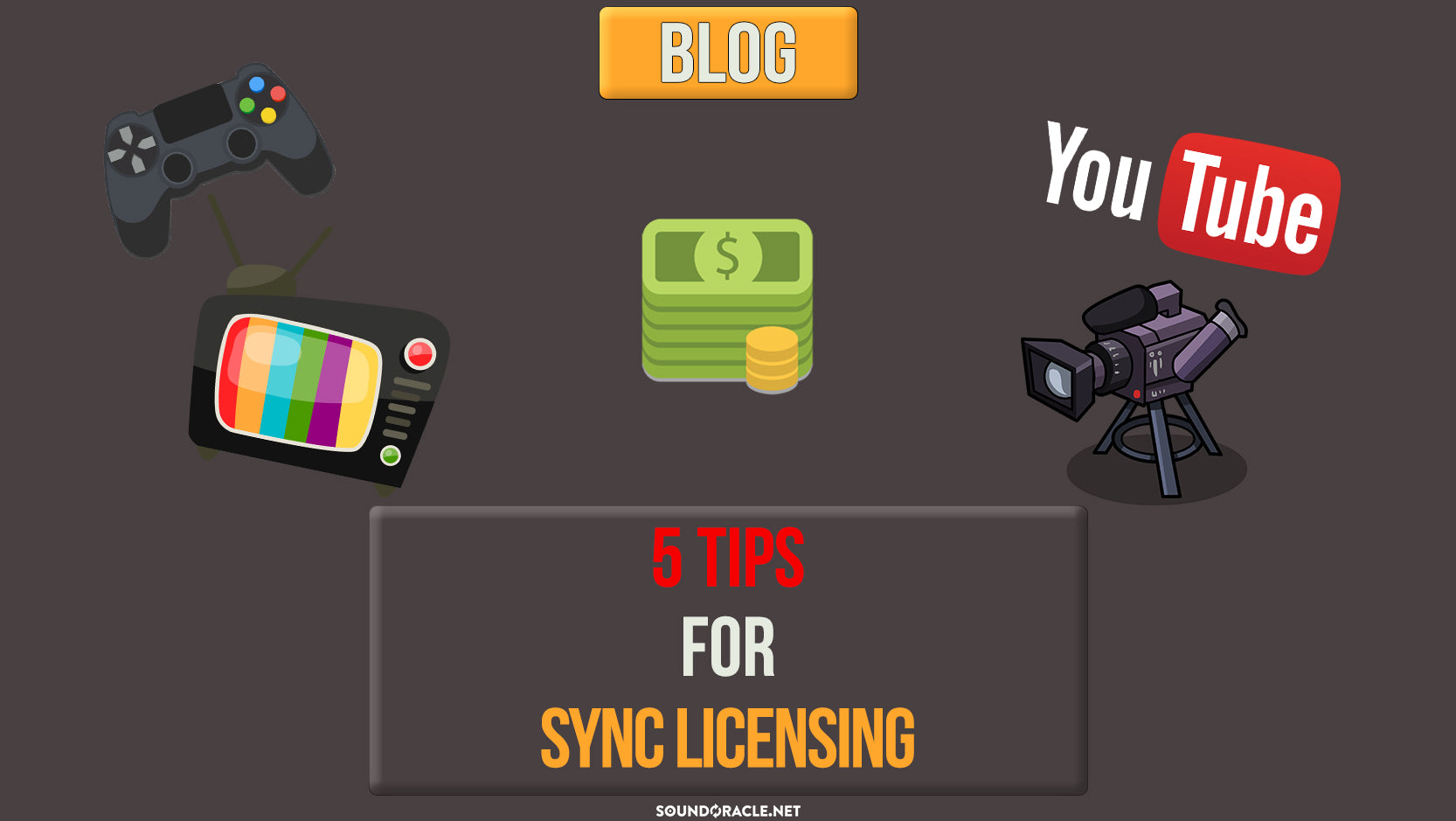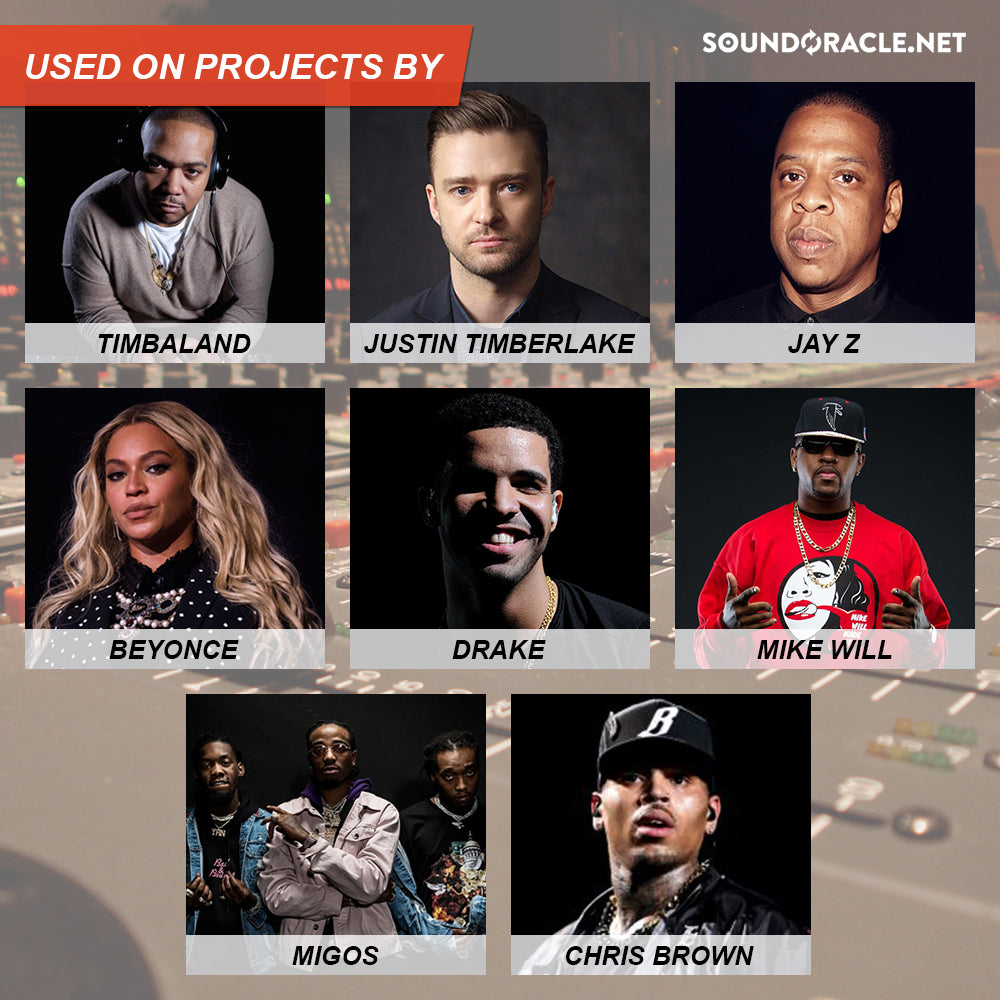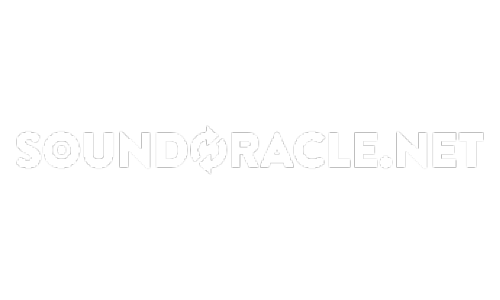5 Tips For Sync Licensing

5 TIPS FOR SYNC LICENSING
Written By: Eric “Realistic” Michael
For most of us that create music, one of the goals is to make a living off our music. For some of us that means all the fame & fortune, while others are just looking to cover all their living expenses from the money they make from music. Either way, one of the best ways to make money off the music you make is through sync licensing or publishing companies.
Working with publishing companies is one of the best ways to make money off your music. It’s great for producers because a lot of sync placements are looking for instrumentals more than they are full songs. Think about when you watch shows on Netflix, or commercials, or highlight reels on ESPN. Most of the time they’re just instrumentals playing in the background. Even cooking shows or interior design series have music playing in the background. Don’t worry though, songs with vocals & lyrics still get placed quite often.

What Are Synchronization Licenses?
Sync licensing is when you grant a music license to be used by a third party. The license allows the licensee or purchaser the right to use the song or beat in a visual piece such as a commercial, ad, video game, YouTube video, show, or movie. Just remember though mechanical licenses are for audio-only. While synchronization licenses are for video. You can also still receive performance royalties from your PRO every time the song is played. This is paid out from your PRO usually & not the licensee or publishing company. We’ll talk about registering your songs later on though. Usually the licensee will pay an upfront fee to purchase the right to use your musical piece in their work. The purchase amount depends on a few things: The most common way to get your music picked up by a licensor is by submitting your tracks to a publishing company or a music catalog. They will help get your music placed with different companies or purchasers & in turn the publishing company will receive a cut of the money - usually 50%. Sometimes these companies will actively shop your songs, while other companies just have a music catalog on their site that potential purchasers can sign on to & browse through. Usually these data systems have easy to use search engines with options for tags & filters to make it easy for the purchaser to find exactly what they are looking for.

What To Expect For Your Sync Deals
For most people, they land their sync placements through a publishing company or music catalog. This makes it easier for your songs to be placed because these companies have relationships & clientele that you otherwise would not have access to. So because they have all of that already built up, they will take a cut of the money you receive from the purchaser. The most common number you will see is 50%. This is the publisher's share. You & your co-writers (if any) will receive the other 50% which is called the songwriter’s share. If you have co-writers, you will split the remaining 50% up amongst each other. The publishing company taking 50% is pretty much the standard & you shouldn’t be alarmed when you see that number. It is uncommon however, for the publishing company to take more than 50% & that’s when you should raise some concerns about the split. It’s also uncommon for a publishing company to ask you to pay a fee to join their library, for you to submit tracks, or to get songs placed. Anytime a publishing company asks you to pay anything to get placed is cause for concern. This is most likely a scam & you should take caution. Some deals are exclusive & some are non-exclusive. There are tons of non-exclusive deals out there though, & we recommend looking for deals that are non-exclusive. Exclusive deals should raise caution unless it’s for a private deal you’re working on such as if Apple hired you to create a song for their upcoming Apple Watch commercials. That deal is probably worth losing your non-exclusive rights though. Take that deal lol! Non-exclusive deals will allow you to continue to shop & sell your music. This means that you could still keep your beat on your beat store & sell it to artists, get it placed with artists, or you could shop the song or beat to another publishing company. These deals are more common & usually come from more legitimate companies. You should be able to retain the copyright to the master recording or composition. Don’t submit the same song to too many libraries though. After a while, they may blackball your song if submitted to too many publishing companies. One last thing to expect & to consider is usually you will have to give up your right to be selective of where your song is placed. You will have no input based on your moral personal reasons. This means that the song could be placed in a political campaign or with a company that you don’t support or are against & you will have to accept that’s where the song is placed & you will not have the right to deny them the right to use the song after they have purchased the license. The purchaser usually will also have the right to alter the song as they see fit. They could pitch the track up or down, speed or slow it down, rearrange it, or chop it up to their liking. You won’t have any say in this or be granted pre-approval.

Creating Descriptions & Tags
When it comes to sync, metadata is incredibly important, as it enables music supervisors—those whose job it is to zero in on it and select suitable songs for visual-media projects—to quickly find the perfect fit for their needs. Depending on the platform you use, carefully and accurately selected, descriptive, and creative metadata such as genre, mood, and theme, assist with your music’s discoverability. You will want to properly tag your tracks with the appropriate moods & genres. Some companies have a tagging system in place that you can check off boxes, while others will have you write in what the moods & genres are. This then allows the purchaser to simply type in things like happy, money, sports, romantic, sad, etc to narrow down the possible songs & find exactly what they’re looking for. It is very important that you choose your tags based on what the song actually is & not just what you think would be a popular tag. Your song could be flagged or removed if you keep using the wrong tags that don’t fit the song. Lots of companies will want you to write a short 1-3 sentence description of each track as well mentioning what the track is intended for (I.e fight scene in a movie or smooth ride during a car commercial). You will usually want to include the BPM & key as well.

Creating Multiple Versions
Each company you submit to will usually ask you for alternative versions of the track. Some companies will ask for different versions than others. You may have to prepare clean versions, instrumentals, acapellas, shorten versions of the song, & even versions where the drums & bass are removed. Some companies will also want you to submit short previews of the song. Like a 5 second, 10 second, & 30 second preview of the song. This is usually for the search engine so potential buyers can hear a quick snippet of the track. Typically you should select the best part or most exciting part of the song as your preview.

Have Everything In Order Before You Submit
It can be incredibly helpful, save you lots of time, & give you better accuracy if you have everything in order before you submit your songs. We can start with a few of the things we discussed earlier: You’ll also want to have everything with your Performance Rights Organization (PRO) submitted. The three most common are ASCAP, BMI, & SESAC. You should already be registered with one, but if not, you will want to do that ASAP & definitely before you submit anything. Most publishing companies won’t touch your songs until you register them with your PRO. Your publishing company is most likely going to want you to submit your PRO affiliation, IPI number, & PRO work number along with the song. That’s why it’s important to have your songs submitted & registered with your PRO prior to submitting your songs to the publishing company. You’re usually going to need to have all of that information included. So let’s breakdown a few of those terms & what they are:
So now that you have a better understanding of how this all works, you’re ready to start finding publishing companies to submit your music to & start making money!
ERIC MICHAEL
REALISTIC PRODUCTIONS
(Engineer)
Realistic is a Music Producer and Engineer located in the Twin Cities. He has been producing music for Hip-Hop & Pop music since 2004. In 2017 he graduated with an AAS in Music Production & Engineering. Real is the chief mixing engineer for SoundOracle.net where mixes all loops & sounds on the site & also provides mixing & mastering services on the site to artists & producers.
CONNECT WITH ERIC
Producers have eagerly been awaiting this groundbreaking video course & it's finally available to access.Giving your beats a professional mix is a standard that's expected from major labels & publishing companies when trying to get your beats placed.Our brand new coursework will teach you everything you need to know to ensure your beats have an outstanding mix & loud clean master.Save thousands of dollars by not having to enroll in school & save hundreds of hours from watching the wrong the tutorials.
What's included?
* Over 5 hours of expert techniques
* Mixing cheat sheets in PDF form
* An easy to understand, concise layout
* Small, digestible chapters with quick access to the info you need
* Everything you need to know to mix your beats professionally





Hi, interested in the art of beat mixing course wanted to know if it’s a book or a tutorial?